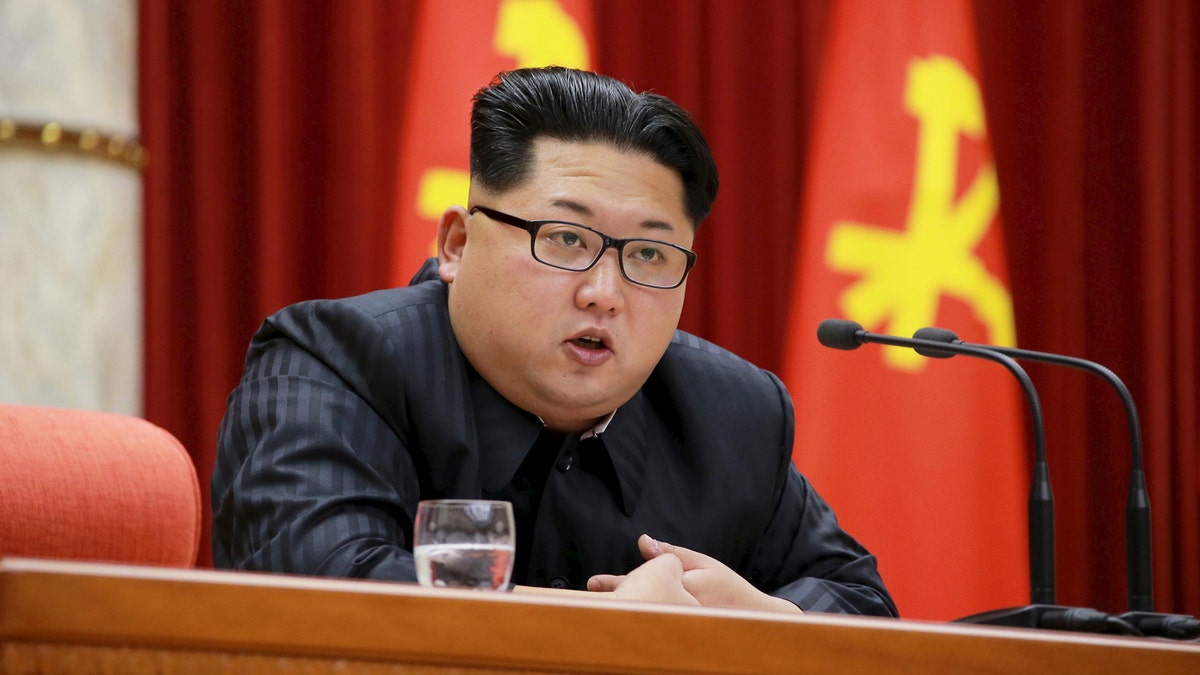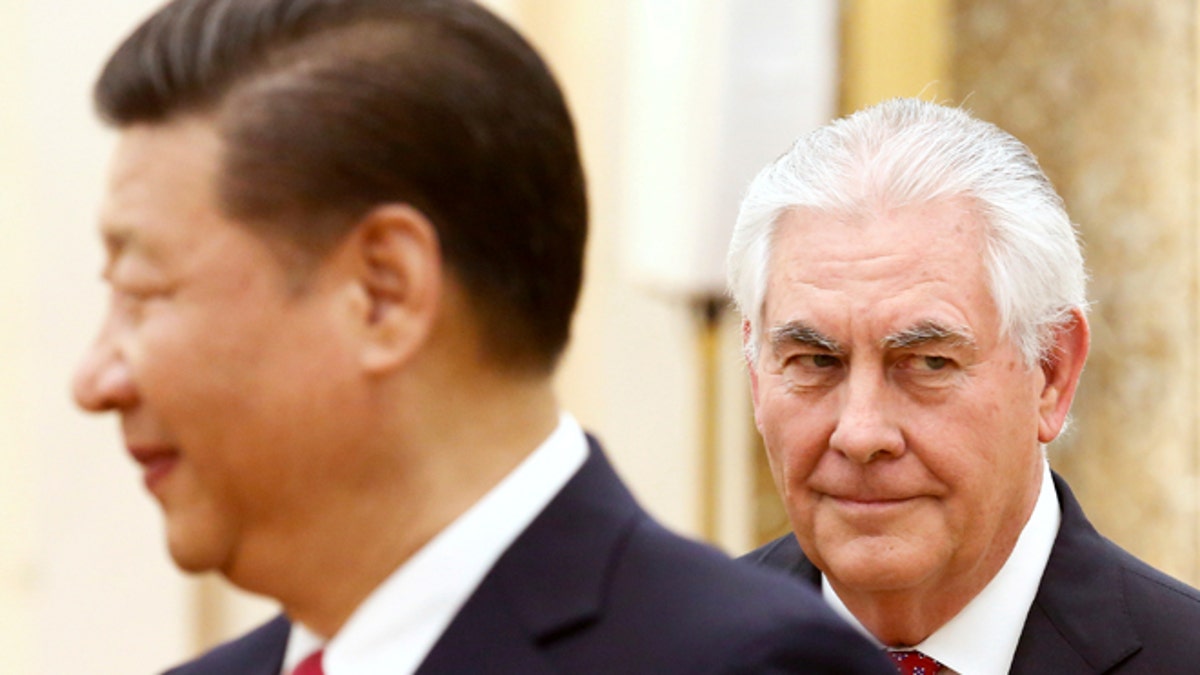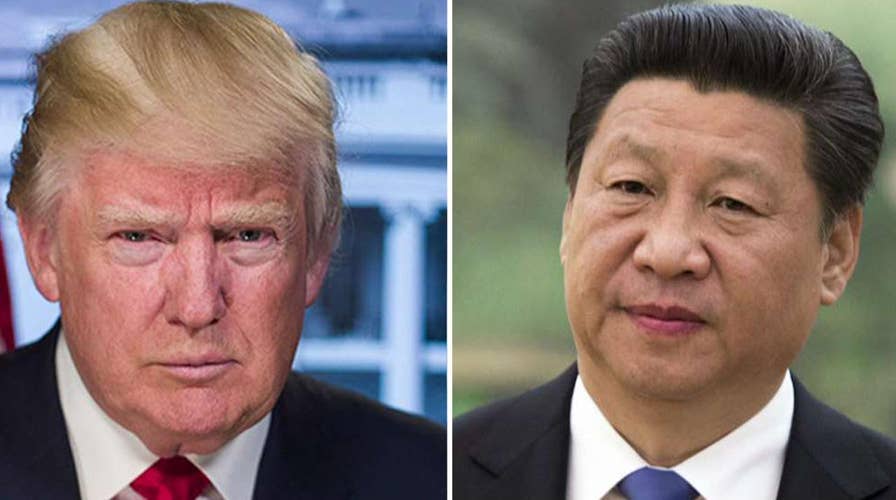It is hard to imagine to two people more diametrically dissimilar than President Donald Trump and his Chinese counterpart, Xi Jinping.
Xi, the son of a Chinese Communist Party leader who was a confidant of Mao Zedong, is a strident party apparatchik known for his cautious approach in politics and following strict protocols. He keeps his private life out of view and rarely goes off script from his core message when speaking publically.
Trump, on the other hand, is a billionaire real estate mogul-turned-politician whose political outsider status paired with his off-the-cuff populism propelled him into the White House. During his decades as a boisterous New York businessman, Trump’s personal life was a constant fodder for the tabloids.
So there is a great deal of speculation among observers about what will happen when Xi arrives at Trump’s Mar-a-Lago resort in Florida on Thursday for the first meeting between these two very different world leaders.
“This meeting will set the tone in looking at the strategic framework between the U.S. and China for the next few years,” Robert Daly, the director of the Kissinger Institute on China and the United States at the Woodrow Wilson Center, told Fox News. “China wants to know what President Trump’s framework toward Beijing will be and if he is a man they can work with.”
During his time on the campaign trail last year, Trump was harshly critical of China – accusing the country of “raping” the U.S. economically – and he has threatened to impose a 45 percent tariff on Chinese imports. As president, he has kept his tough stance on trade relations between Washington and Beijing.
Just last week, the president tweeted that he expects his meeting with Xi to be “very difficult” and added on Friday that “we’re going to get down to some serious business” in reference to the trade deficit with China and Trump’s perception that the China is negatively impacting the U.S. economy, especially in regards to the manufacturing sector.
To this end, Trump signed a pair of executive orders last Friday that – despite assertions from White House aides that the timing was coincidental – appear to take a shot a China ahead of Xi’s visit. The two orders focused primarily on reducing the trade deficit, which accounted for the majority, $347 billion, of last year’s total $502 billion trade deficit.
China downplayed Trump’s tweet and executive orders by portraying the issue as one in which both nations had an equal stake in.
This meeting will set the tone in looking at the strategic framework between the U.S. and China for the next few years.
“China will continue to work with the United States to think creatively and keeping pushing for greater balance in China-U.S. trade,” Vice Foreign Minister Zheng Zeguang told reporters in Beijing.
Experts tend to agree with the Chinese government’s assertion – noting also that there are many other factors to take into account when looking at the loss of manufacturing jobs in the U.S.
“It is very important—very important—to keep China engaged in the world economy,” Frances Rosenbluth, a political science professor at Yale University, told Fox News. “We want them to have an economic stake in our prosperity and in global economic stability and growth, more generally. So trade protectionism is just a bad idea.”
Rosenbluth said while it may be convenient to blame China for the loss of American job “the far bigger cause is automation.”
While there are very low expectations that any major trade deal will come out of the meeting between Trump and Xi, observers have noted that China could grant Trump some minor economic concession. This would give the president – still smarting from the failure of health care reform – a publicity victory, while also allowing Xi to tout that the relationship with Washington is still strong as he prepares to consolidate his power at the 19th Chinese Communist Party congress later this year.
“They’re probably going to do some chalkboard diplomacy that will enable Trump to have a successful summit at Mar-a-Lago,” Daly said. “Xi just wants to stabilize the relationship for the rest of this year.”
Another issue that has rankled Trump is China’s refusal to take a stronger stance toward North Korea and its burgeoning hopes of developing nuclear weapons. Early Wednesday morning North Korea fired an apparent ballistic missile into the Sea of Japan, just hours after Trump described the country's pursuit of a nuclear arsenal as a "humanity problem" and a senior U.S. official told reporters that the "clock has now run out" on Pyongyang.

North Korean leader Kim Jong Un speaks during a ceremony to award party and state commendations to nuclear scientists, technicians, soldier-builders, workers and officials. (REUTERS)
Speaking last week to the Financial Times, Trump said that if China doesn’t get tough on North Korean leader Kim Jong-un’s nuclear ambitions, the U.S. is prepared to act unilaterally.
“China has great influence over North Korea,” Trump said. “And China will either decide to help us with North Korea, or they won’t. And if they do that will be very good for China, and if they don’t it won’t be good for anyone.”
North Korea has overshadowed much of the talk in the region, but the U.S. has a slew of other concerns with China when it comes to their role in East Asian affairs.
China recently provoked the ire of Japan and heightened tensions throughout East Asia, when they flew a pair of nuclear-capable bombers around Taiwan for the first time, as the Japanese scrambled eight F-15 fighter jets to intercept the Chinese flight while it was circling the island.
China in December also placed hundreds of surface-to-air missiles on Hainan Island off mainland China, which intelligence officials say could one day be moved to China’s man-made islands in the South China Sea to better defend them.
“Those islands are already built and they will be operational soon,” Shelia Smith, a senior fellow at the Council of Foreign Relations, told Fox News. “It’s like the Death Star in Star Wars.”
For his part, Trump irked the Chinese by taking a phone call with the Taiwanese president soon after winning the election and there are rumors that his administration wants to build a stronger relationship with the self-governing island democracy.

China's President Xi Jinping meets U.S. State of Secretary, Rex Tillerson at the Great Hall of the People in Beijing, China. (REUTERS/Thomas Peter)
“The U.S. has always sold weapons to China but done so in carefully crafted packages,” Smith said. “The Trump administration may not be as hesitant as previous administrations have been at selling all types of weapons to Taiwan.”
Despite the marked differences both economically and strategically, longstanding Chinese tradition has been to have outwardly cordial relations with U.S. leaders. If this continues under a Trump administration is still up for debate, but experts say one thing is clear: Beijing knows more about the Trump administration than the White House knows about China.
Trump’s State Department under Rex Tillerson has yet to appoint an assistant Secretary of State for East Asia – although there are rumors that the Chinese favor Trump’s son-in-law Jared Kushner for the post – and the U.S. has been focused more on mounting issues in the Middle East and Russian hacking than on affairs in East Asia.
“Right now we don’t know what we want and China is not our biggest concern,” Daly said. “China knows exactly what it wants and thinks about the U.S. all the time.”

























